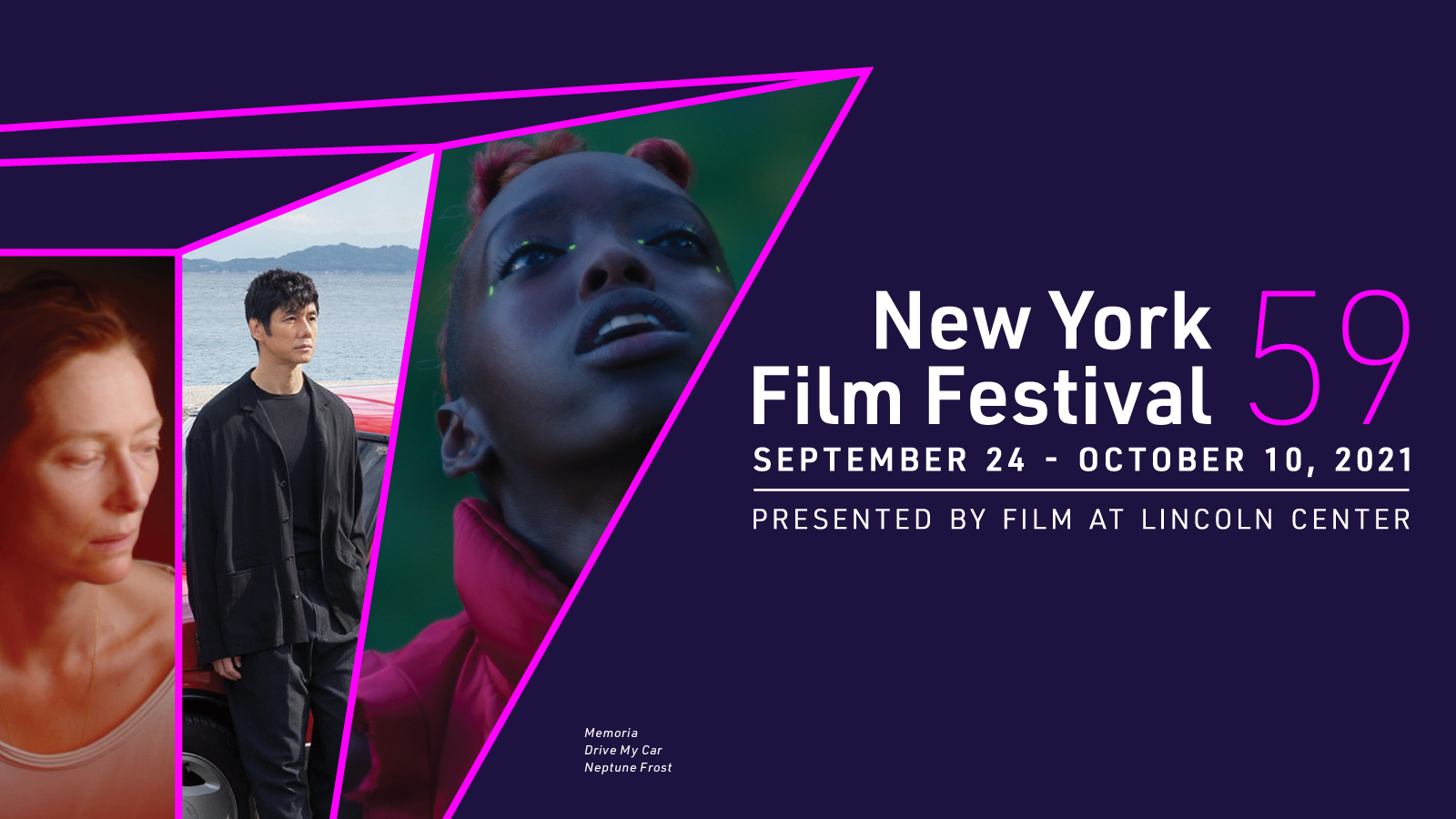(ThyBlackMan.com) Voices from around the world were heard at the 2021 New York Film Festival. Auteurs like Pedro Almodóvar and Jane Campion reemerged with their latest works. New directors broke rules and made their marks with controversial or nostalgic movies. These films are making their way to local theaters in coming months.
Bergman Island (**1/2) This winsome story about two filmmakers who visit the secluded Swedish isle of Fårö has a blessing and curse. It’s graced because it takes place in the hometown of the legendary writer/director Ingmar Bergman (Persona) and the characters Chris (Vicky Krieps, The Survivor) and Tony (Tim Roth, Rob Roy) know they are walking on hallowed ground. For others, this story of self-discovery, regarding a screenwriter with writer’s block, is a bit insular and inaccessible.
Mia Hansen-Løve, an actress (Les Destinées) turned writer/director (Eden), creates a magical atmosphere. When Chris daydreams of the lovebird characters in her script they appear on screen depicted by Mia Wasikowska and Anders Danielsen Lie. Viewers may be confused initially but will eventually enjoy the romance. For this film to show its true strength as a dra/rom, there needed to be more at stake in Chris’ life and her marriage than the quirks on view. Krieps and Roth make the two auteurs seem ordinary, which pulls you into the story, but doesn’t make what’s on view truly compelling. Nicely shot (Denis Lenoir) and costumed (Judith de Luze, Julia Tegström). Says one of the lovers: “You do realize we’re going to sleep in the bed from Scenes from a Marriage.” The right crowd will be thrilled by the nostalgia. Others will say: “Scenes of what…?”

C’mon C’mon (**1/2) There are two films in this one movie vying for attention. The better of the duo is a documentary in which filmmakers travel around the country to inner cities asking young students very philosophical questions about life: “What do you think the future will be like?” The precocious children give very thoughtful answers, ones that would make Socrates proud. This part of the film plays like a very captivating doc. The fake drama that surrounds it involves the documentarian on the project, Johnny (Joaquin Phoenix, Joker), who travels to his sister’s (Gaby Hoffman, Transparent) home and gets drafted into watching over her young son and his nephew Jesse (Woody Norman), when she leaves town to care for her mentally ill husband (Scoot McNairy, A Quiet Place Part II).
The triad relationship between brother, sister and nephew rings true and false. Themes of parenting and dealing with precocious kids make sense. Taking a kid on a doc filmmaking journey seems a bit farfetched. Like, only in the movies. Norman is a child actor with great instincts, and he is far more believable than Phoenix and Hoffman, who seemed trapped in unlikely characters doing unlikely things. The dodgy script is by director/writer Mike Mills (20th Century Women). At one point while Johnny is on the road with the emotionally complex Jesse, the kid disappears in a store and the uncle goes berserk with fear. Later, Jesse slips away again outside on the streets, and you wonder, “Would a functioning adult let this happen twice?”
Mills shot the interviews and family travelogue in black and white. Why? This isn’t an art film. The lack of color is off-putting and won’t help audiences connect emotionally with the family dynamics. And, because the script is so excessively character-driven, often it feels like the actors are doing acting exercises and not mimicking real life. However, there are some moments when Johnny’s epiphanies do resonate. “I can leave a [bad] situation. The people I interview cannot.” If the film had more perceptive moments, viewers could overlook the artificial plotting. There’s a documentary inside this feature film screaming to get out. We can hear it.
Parallel Mothers (***1/2) Pedro Almodóvar (Talk to Her) consistently assembles a stellar production crew that makes all his movies dazzling to watch. However, in this case the slick cinematography (José Luis Alcaine), over-stylized sets (Vicent Diaz), fancy clothes (Paolo Torres) and moody score (Alberto Iglesias) almost overshadow the two very intimate storylines that make this poignant movie Almodóvar’s best work in decades:
Janis (Penélope Cruz) is a fortysomething photographer in Madrid who is determined to have her great-grandfather’s body exhumed from an unmarked mass grave where it was buried during the reign of the dictator Francisco Franco. She seeks help from a forensic anthropologist, Arturo (Israel Elejalde). Later she finds herself pregnant and on a maternity ward with Ana (Milena Smit), a teenager. Both women birth daughters and their lives are intertwined forever.
The script’s reverence to the history of the 100,000 Spaniards who were killed or missing during the Spanish Civil war is a marked departure for a writer/director whose career hallmark has been campy comedies (Women on the Verge of a Nervous Breakdown). The sobering subplot instigates a story about two women, drifts from drama to melodrama and then involves astonishing, unpredictable twists that only a gifted screenwriter could concoct. The only flaw in the writing is making the Cruz character a photographer (not all that believable), when perhaps being a busy corporate exec would have been more conceivable. Cruz handles a challenging role well, never making the dire consequences of her choices look less than real. Smit as Ana becomes a fine new member of Almodóvar’s troupe and it’s also great to see veteran Almodóvar muse Rosy de Palma (Kika) as Janis’ friend. Rarely does melodrama produce such great suspense. You’re constantly waiting for the next shoe to drop and continually shocked that it’s never what you think it will be. Oscar-caliber screenwriting and direction and easily one of Almodóvar’s best films.
The Power of the Dog (**1/2) Twenty-eight years have passed since Jane Campion enthralled audiences with her classic art film The Piano. Today, her filmmaking ability is still impeccable, but her choice of stories is not. In this cowboy-gone-wrong epic, the tech credits (cinematography, production design, sets, art direction, costumes, music, editing) are as magnificent as they were in her iconic Oscar-nominated film. Also, the setting of this screen adaptation of Thomas Savage’s 1967 cult novel couldn’t be more evocative. In 1935, a Montana cattle ranch with sweeping views of mountains and badlands is run by two adult brothers. Phil (Benedict Cumberbatch) and George (Jesse Plemons) are as different as night and day. Phil is temperamental, untrusting and brutish. George is far more composed, settled and positive. The day George brings his new love home, a widowed woman named Rose (Kirsten Dunst) accompanied by her odd adolescent son Peter (Kodi Smit-McPhee), Phil goes on a relentless tirade of emotional abuse against the two interlopers.
The more the story reveals Phil’s background, the less his character makes sense. A Yale graduate who won’t take baths before attending fancy dinners? A bullying homophobe who likes male skin magazines? Examining repressed sexuality is a worthy endeavor. But unless the storyline is trying to make a new point that’s pertinent in the 21st century—why bother? Hence the outdated narrative in this west/rom/dra flails. Cumberbatch is miscast as the vile cowboy and his accent is affected. Plemons interpretation of the quiet sibling is more on target. The brother-on-brother conflict rings true, nonetheless. The nuances in Durst’s tortured performance as the nervous wife are extraordinary. But watching Phil bully Rose and Peter for 2hr 16 min will test viewers’ patience. And there is no upside. No moral to the story. No life lesson. But, you will enjoy the view.
Titane (**1/2) One of the opening scenes in this freaky hor/dra/sci-fi/thr is cool as hell: A lanky blonde dancer, Alexia (Agathe Rousselle), walks into a club the size of an airplane hangar. The camera (cinematographer Ruben Impens) follows her for a while, then decides to float around cars and through the crowd, like it’s a puppy dog only half interested in following its master. Wait, there’s more—Alexia has a secret. She’s a psychopath who kills people she likes and hates. No one is safe as she careens through life leaving a trail of dead bodies with no remorse. Then one day, she meets an emotionally fragile middle-aged firefighter (Vincent Lindon) and masquerades as his long-lost son. Is he doomed too?
Yes, it’s a far-fetched plot only a Midnight Madness film audience could love. But that’s who writer/director Julia Ducournau is courting. She’s out to shake up several genres and shock her audiences with nudity, sex, violence, torture and depravity. It’s all good, because her crowd wants to see movie conventions trashed. Her tech team aptly supports her efforts–from production design, to set decoration and makeup. If you ask yourself why this film was made, you’ll drive yourself crazy. If you ask why a repulsive, artsy horror flick won the coveted Palme d’Or at the 2021 Cannes Film festival, you’ll be scratching your head for an eternity.
The Velvet Underground (**1/2) This music doc salutes the experimental rock group The Velvet Underground as its director Todd Haynes (Far from Heaven and Velvet Goldmine) gives viewers a backstage pass to their performances. It’s also a homage to the Avant Garde NYC artists scene in the 1960s and ‘70s. And ironically, recreating the era and sketching the whereabouts and personalities of those involved is more interesting than the actual music on display. The legendary band members include Lou Reed, Nico, John Cale and others, and having Andy Warhol as a manager and being the house band at his famous Factory made the group an integral part of New York subculture.
Though VU’s legacy is respected nowadays, back then their cool but monochronic or dissonant sounds didn’t attract vast rock audiences or create top ten hits. In fact, sometimes they were booed off the stage. Haynes uses and overuses a split screen effects to display current and ancient interviews, performances and other archival recordings. The 1960s atmosphere on view is as vibrant as it is subversive. The musical soundtrack is greatly enlivened whenever Lou Reed performs, begging the question, “Why wasn’t Reed the focus of the documentary?”
For more information about the New York Film Festival go to: https://www.filmlinc.org/daily/category/nyff/
Written by Dwight Brown
Official website; http://DwightBrownInk.com

















Leave a Reply